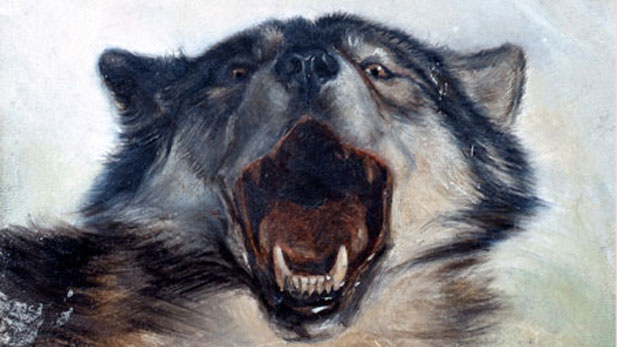In 1893, a bounty hunter named Ernest Thompson Seton went to the untamed canyons of New Mexico on a mission to kill a renegade wolf called Lobo. Lobo was the legendary leader of a band of cattle-killing wolves that had been terrorizing ranchers and their livestock.

Known as King of Currumpaw, Lobo seemingly had a mythical ability to cheat death. It was up to Seton, a naturalist as well as a professional animal trapper, to exterminate this “super-wolf.” The battle of wits between this wolf and this man would engender a real-life wilderness drama, the outcome of which would leave a lasting effect on the country.
Various techniques were tried to capture the wolf, but each time Lobo outsmarted Seton, just as he had those who had tried and failed before him. Finally, after months of frustration, Seton discovered Lobo’s weak spot — his mate, Blanca. The capture and killing of Blanca broke Lobo’s heart and spirit and brought about his downfall. Seton used four traps baited with Blanca’s scent to capture him.
Finally, face to face with the beast, he lifted his gun to kill. But he couldn’t do it. Perhaps killing Lobo no longer felt like a victory, but a crime. Perhaps — in his eyes — Lobo was no longer vermin, but a creature with dignity: courageous, loyal and loving. Until then, Seton had seen wolves simply as indiscriminate killers. But they were obviously much more than that. They were the very embodiment of America’s vanishing wilderness.
See previews and find out more at pbs.org
Watch it Monday, November 24th 7 pm PBS-World

By submitting your comments, you hereby give AZPM the right to post your comments and potentially use them in any other form of media operated by this institution.